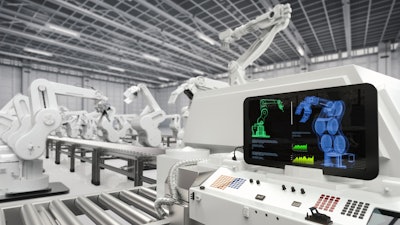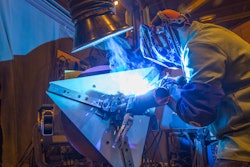
As marketwide digital transformation simplifies the experience of purchasing any kind of good, customer expectations continue to rise — and manufacturers play a large role in meeting them, especially when it comes to the growing trend of mass customization. Mass customization (the act of offering customized goods without raising operating and unit costs) is rapidly gaining popularity with manufacturers looking for a competitive advantage with end customers. Today’s customers are accustomed to making unique requests, and Industry 4.0 makes it possible for companies to fill them.
However, the customization process must be offered in the right way. When the modern customer buys a specialized good that matches their exact requirements, they need the CPQ (configure, price, quote) process to be simple and streamlined — and that means the manufacturing industry must again adapt to the needs of the marketplace.
Mass customization is an important trend and consumers are willing to reward organizations who provide it for them. According to a report from Deloitte, one in four consumers will pay more for a customized product in general. That jumps to nearly half of the customers if they’ve already purchased a customized product in the past.
But while customers are embracing customization, are manufacturing processes rising to the occasion? Although manufacturers are not yet in the right place to offer true mass customization, they must get there soon if they hope to stay relevant. A strong CPQ platform is essential for relevance in Industry 4.0, but the modern CPQ process should offer a user-friendly tech platform directly implemented into a business’ website. It should also allow customers to smoothly build their custom good to meet their exact needs — whether it comes down to size, horsepower, color or beyond.
Moving Towards a Customized Future
The age of mass customization is both exciting and intimidating. It can be tempting to be overambitious and race towards a tech-forward CPQ process to beat out competitors. But before diving headfirst into a complete overhaul of your CPQ tool and customization abilities, your team needs to take a few specific steps to ensure agility and eliminate overthinking.
- Start with the lowest-hanging fruit. Start small by offering customization on one simple product line. This allows you to ease into the process of offering customization and understand what customers need from the CPQ/customization process. It also allows your team members to learn a new workflow on the job and ensure that sales and engineering — two traditionally siloed departments — are working together. Be sure to collect feedback on how the beta version performs, both from customers and internal team members.
- Don’t try to boil the ocean. At KBMax, we have worked with organizations that are so hyped up for the mass customization future that they want to overhaul everything all at once. It’s an admirable goal, but we’ve found that a slower and incremental approach to unrolling a new CPQ solution offers the most success. It allows you to test out what works best for your customers and products, and leaves room to backtrack if a certain aspect of your platform doesn’t go as planned.
- Partner for the right skills. Introducing more tech to manufacturing processes may be a must, but the industry faces a talent crisis. Every organization wants strong technical skills for their digital transformations, making it nearly impossible to recruit and hire adequate talent at a price your company is willing to pay. Luckily, organizations can easily combat limited access to tech skills by partnering with outside solutions. Third-party groups are the ideal solution for accessing expensive tech talent and paying for it on a project basis, making a necessary resource much more accessible. Working with a team of experts to define your customization and CPQ process will set you ahead of competitors that are still searching for a team of developers to build out a proprietary solution.
Change is coming to the manufacturing space, and organizations need to take the appropriate steps if they want to survive and live up to customers’ increasing expectations. CPQ innovations offer a reliable way to carry your organization smoothly into the mass customization future.
Kris Goldhair is the Strategic Account Director at KBMax.






















